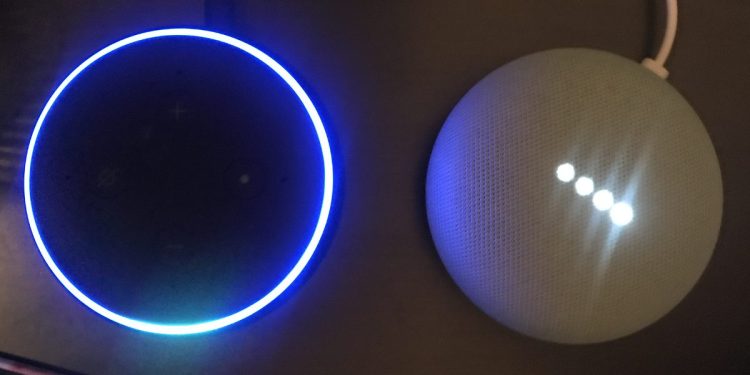Watch all the Transform 2020 sessions on-demand here.
Google Assistant is far better than Apple’s Siri or Amazon’s Alexa at offering accurate information about frequently used drugs like aspirin or Zantac, according to analysis by Canadian consulting firm Klick Health.
Research released today and published in Nature Digital Medicine that examines AI assistant intelligence about the 50 most-used medications in the United States gave Google Assistant a comprehension score of 91.8% accuracy on brand-name medication and 84.3% for generic names, followed by 58.5% and 51.2% for Siri, and 54.6% and 45.5 for Alexa.
Rates were much closer in comparison when asked about popular over-the-counter pain relievers like aspirin (Google 100%, Alexa and Siri both 93%) and Tylenol (Google and Alexa each 98%; Siri 93%), but Alexa has virtually no understanding of Advil (Google 100%, Siri 59%; Alexa 2%) or generic forms of ibuprofen (Google 100%, Siri 89%; Alexa 4%).
“Digital voice assistants are becoming popular tools for gathering health information, so a lack of comprehension puts them at risk of providing poor, inconsistent, and potentially dangerous advice,” Klick Health VP and study coauthor Yan Fossat said in a statement. “We were encouraged by some of the comprehension rates in our research, but more work needs to be done to ensure people’s health and safety.”
June 5th: The AI Audit in NYC
Join us next week in NYC to engage with top executive leaders, delving into strategies for auditing AI models to ensure fairness, optimal performance, and ethical compliance across diverse organizations. Secure your attendance for this exclusive invite-only event.
Health care intelligence may be more important for the makers of AI assistants as Alphabet’s Verily and Google Health consider health care ventures and Amazon shows signs it’s interested in prescription drug delivery.
This isn’t the first time Google Assistant has won a competition to see which AI assistant delivers the most accurate response to factual questions. In a test that took place about a year ago to see which assistant delivers the most accurate answer to more than 800 questions, Google Assistant was declared the smartest, followed by Siri, Alexa, and Cortana.
An assistant’s ability to answer the questions that come to a user’s mind is pretty important. Alongside checking the news and weather and playing music, multiple studies have found that queries in search of answers to factual questions is one of the most popular use cases for assistants.
To improve Alexa’s question-answering abilities, last year Amazon introduced a program for users to submit questions worthy of an answer, and the Alexa Updates feature was added so you get a notification when Alexa learns to answer a question you previously asked.
Last year, Morgan Stanley analyst Brian Nowak suggested that Google give away a Home Mini to every person in the United States to stop Amazon Echo smart speaker sales from cutting into Google’s search result ad revenue.


